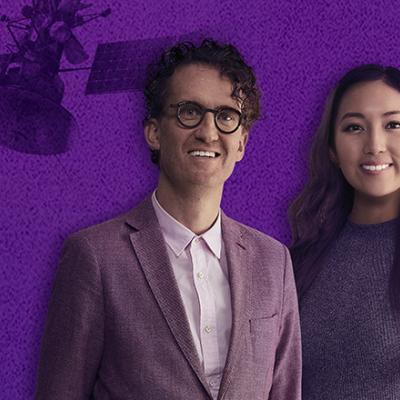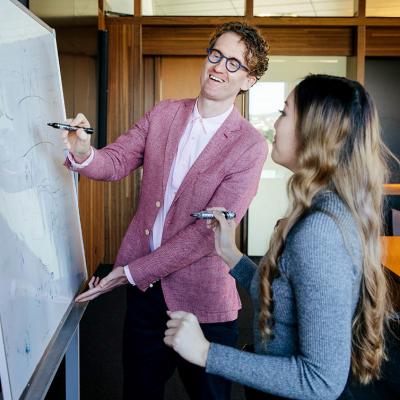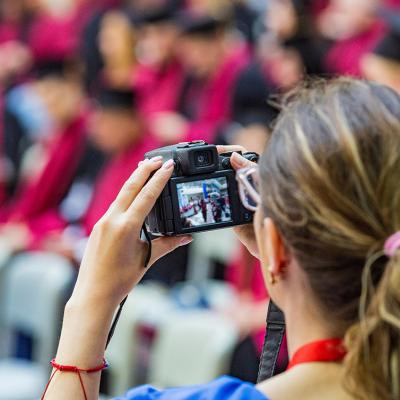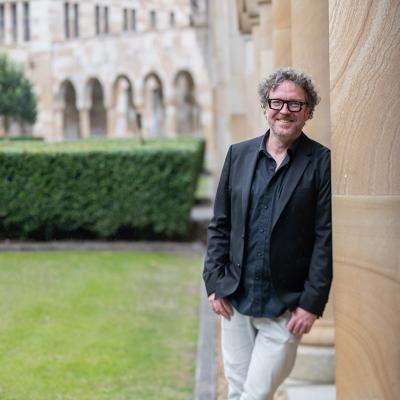Get to know Associate Professor Nicholas Carah, Director of Digital Cultures & Societies in the Faculty of Humanities, Arts and Social Sciences at UQ.
Not available in your region? Watch here.
Why Nic loves teaching
The key to being an engaging teacher is having genuine passion for your area of study – and Nicholas Carah is the perfect example of this.
“What I’m really interested in is the way digital media has transformed our culture and our sense of ourselves, our homes, our everyday lives,” he says.
“That’s the thing that I spend a lot of my time thinking about and doing research about.”
“We use communication to build a world together. It is fundamental to the human experience. There’s no culture, society, politics or technology without our capacity to communicate. So, in a sense, to study, research and teach media is to be thinking about the very centre of the human experience.”
And this passion isn’t new for Nic. In fact, he thinks it started way back when he was a kid in art class, studying pop artist Andy Warhol.
“I started reading up about his work and I got really interested in the power and iconography of consumer culture, advertising and mass media,” he says.
“Over time, that morphed into an interest in the power of media to shape our lives and identities. I guess I was just fascinated with how that power worked.”
“I sort of oscillated between wanting to create media and wanting to explore and study it. I stuck with studying it, I think, because I started as a researcher about the time that social media started emerging – and I sort of caught the current. I thought that some sort of fundamental change in our culture was taking place and I wanted to follow it.”
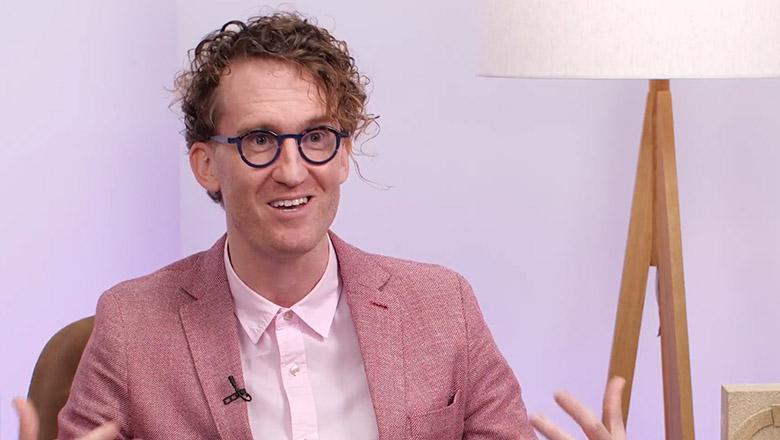
Nic’s teaching style
Nic never feels like he’s delivering the same old content to a new sea of faces. Rather, the experience is fresh with each cohort.
“I’m in a room with people who are discovering these ideas for the first time,” he says.
“And it kind of makes me feel like I’m discovering them for the first time.”
“I’m going to a classroom, the world is changing all around us, new technologies are emerging – we have to make sense of how they work. And teaching is a process of trying to figure it out by helping you figure it out.”
What keeps the classroom exciting for Nic is that it’s always a learning experience for him as well as his students. This mutually beneficial experience has shaped his teaching style towards collaboration.
“I typically arrange my classrooms in a very circular way,” says Nic.
“I talk for a bit, others talk to each other for a bit, and they talk back to me. That’s the kind of classroom I imagine. It kind of speaks to, I suppose, the politics of how I want to teach.”
“Let’s try to establish some questions and some problems that we share in common, and then let’s work together on them.”
Nic’s approach isn’t just about sharing ideas and explaining concepts to his students. For him, it’s equally important to emphasise the importance of his course’s content – the why behind it all.
“My style is to go in and try to frame what we’re thinking about in terms of who’s trying to get what done in the world here – let’s think about that,” he says.
“Then, what I want the students to do is buy into that as something that matters.”
Nic also takes great care to ensure his course is highly industry-relevant, ensuring his students graduate with the skills and mindset for an entire career – not just their first role out of uni.
When evaluating his course content, Nic considers whether an industry person in his classroom would understand, enjoy and appreciate the significance of what he’s teaching.
“One of the best ways to prepare people for the future is to help them understand the longer history, the longer story,” he says.
“And I think that’s really unique about our program here at UQ – those deeper threads.”
“One of the ways in which I really work on preparing students for an unknown future is to see themselves in these longer currents – not just the present moment in these longer currents, but their whole life and what they might do with their life, beyond just getting a first job.”
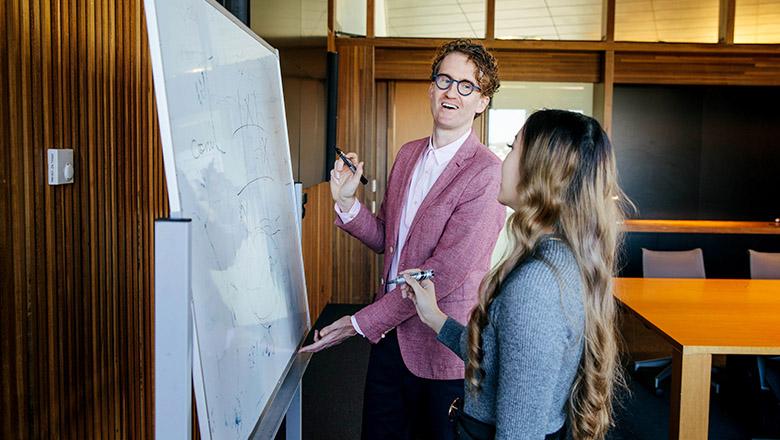
Nic believes communication graduates have the power to help people see each other and their lives as a shared endeavour.
“Our futures – the kind of cultures we build, the nature of our societies and relationships with one another, the way we live within the ecological limits of our planet – depend on our capacity to communicate with each other and act together,” he says.
“I hope my students go on to create media institutions and cultures that build a shared social world that enables our mutual flourishing.”
The value of student-academic partnerships
One of Nic’s proudest accomplishments is the student partners he’s collaborated with over the past 4-5 years, who have been instrumental in the ongoing evolution of his course.
“Students who have previously done really well in my course come along and work with me on developing the next version of the course,” he says.
“And it’s this really mutual, collaborative exchange between me and these students. I admire arguments and ideas about how the course should be, but it was like I was really listening to the students, letting them tell their version of how the course should be.”
It’s not just Nic and his future students who benefit from this partnership. It’s also a fulfilling extracurricular activity for the students who take part.
“They tell me those kind of experiences are really transformative for them, because it was like really formally recognising their expertise, their abilities, their creativity to make interesting stuff – to contribute to the intellectual fabric of the course, to the ideas we’re engaging with,” says Nic.
Ultimately, Nic knows he’s done a good job when he can see that his students are excited to think about the world and how they can help build and improve it. Sparking a lifelong curiosity is always a success in his books.
“The world is so interesting, and it’s there to be made sense of.”
Meet some other UQ academics or learn more about the Bachelor of Communication.



